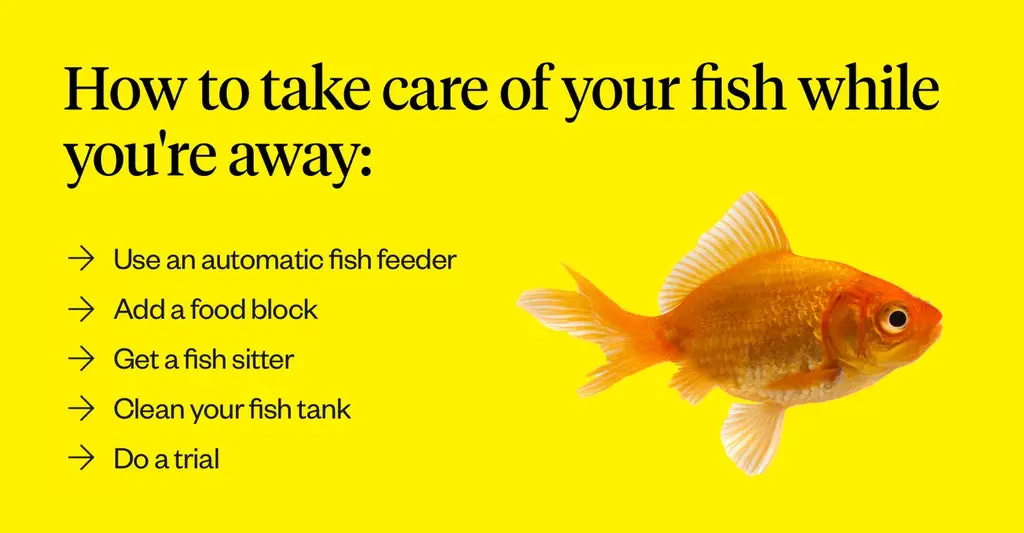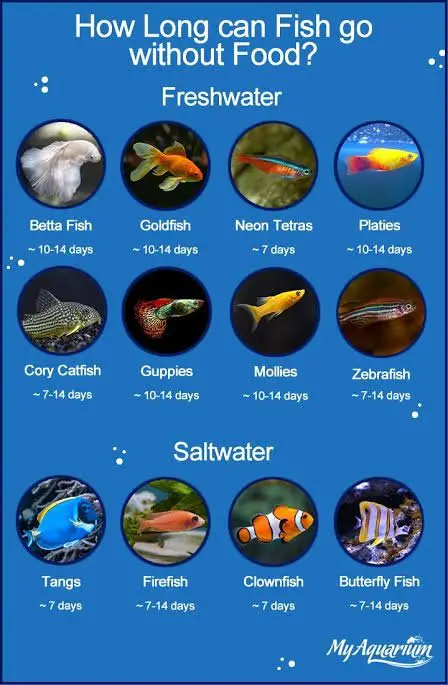Aquarium fish are undoubtedly one of the most mesmerizing creatures in the world. Their vibrant colors, graceful movements, and unique personalities make them a popular choice for pet owners around the globe. However, one question that often pops up in the minds of aquarium enthusiasts is, “How long can aquarium fish go without food?”
While it’s common knowledge that fish need to be fed regularly, there may be situations where you may have to leave your fish for an extended period without food. In this article, we will explore the answer to this question in detail, along with the factors that affect the survival of aquarium fish without food. So, let’s dive in!
Aquarium fish can go without food for up to two weeks, depending on the species and their overall health. However, it is not recommended to leave fish without food for extended periods as it can lead to malnourishment, weakened immune systems, and even death. It’s best to stick to a regular feeding schedule and provide the appropriate amount of food for your fish’s needs.

How Long Can Aquarium Fish Go Without Food?
Aquarium fish are delightful creatures that add life and color to any aquatic environment. They come in different sizes, shapes, and colors, and they all have unique personalities. To keep them healthy and happy, it’s important to provide them with a balanced diet. However, there may be times when you’re unable to feed your fish, and you may wonder how long they can go without food. In this article, we’ll explore the answer to this question and provide some tips on how to keep your fish healthy.
Factors that Influence How Long Fish Can Go Without Food
The length of time that fish can go without food depends on several factors, including their species, age, size, and overall health. Some fish species are more resilient than others, and can survive for weeks without food. However, most fish can only survive for a few days to a week without food. Juvenile fish and smaller fish are more susceptible to starvation and may die sooner than larger fish. Fish that are already sick or stressed are also more vulnerable to starvation.
The temperature of the water in your aquarium also affects how long fish can go without food. Fish that live in warmer water require more energy to maintain their metabolism, and therefore, need to eat more often. If the water temperature drops, fish can slow down their metabolism to conserve energy and survive longer without food. However, it’s important to note that prolonged fasting can weaken the immune system of fish, making them more susceptible to diseases.
The Effects of Starvation on Fish
When fish don’t get enough food, they start to use their stored fat reserves for energy. As they continue to fast, their body will start to break down muscle tissue to provide energy. This can lead to organ failure and death. In addition, fish that are starved for a long time become weaker and more vulnerable to diseases. Their immune system becomes compromised, and they may be more susceptible to bacterial and fungal infections.
How to Keep Your Fish Healthy When You Can’t Feed Them
If you’re going on vacation or won’t be able to feed your fish for a few days, there are a few things you can do to keep them healthy. First, make sure that your fish have plenty of clean water. Clean the tank before you leave and change the water if necessary. This will help to ensure that the water quality remains good, which can help to prevent diseases.
Second, you can use an automatic feeder to dispense food while you’re away. These feeders can be programmed to release food at regular intervals, ensuring that your fish get the nutrition they need.
Third, you can ask a friend or neighbor to feed your fish while you’re away. Make sure to give them clear instructions on how much to feed and how often. You can also show them how to test the water quality and make any necessary adjustments.
The Bottom Line
In conclusion, most aquarium fish can survive for a few days to a week without food, but prolonged fasting can have serious consequences. Factors like the species, size, age, and overall health of your fish, as well as the water temperature, can impact how long they can go without food. If you’re unable to feed your fish for an extended period, it’s important to take steps to keep them healthy, such as using an automatic feeder or asking a friend to help. By taking these precautions, you can ensure that your fish stay healthy and happy, even when you can’t be there to feed them.
Frequently Asked Questions
How long can aquarium fish go without food?
Aquarium fish can go without food for varying periods depending on their species, age, size, and health status. Generally, healthy adult fish can survive without food for up to two weeks, while young fish and unhealthy adults may not last that long.
It is important to note that depriving fish of food for extended periods can lead to malnutrition, weakened immune system, stunted growth, and even death. Therefore, it is not advisable to intentionally starve your fish as a way of punishing them or controlling their behavior. Instead, ensure that you feed them the right amount and type of food regularly, and seek professional advice if you notice any abnormalities.
What factors affect how long aquarium fish can go without food?
As mentioned earlier, several factors determine how long aquarium fish can survive without food. These include:
Species: Some fish species, such as bettas and gouramis, have labyrinth organs that allow them to breathe air from the surface. This means they can survive longer without food compared to fish that rely solely on gills.
Age and size: Young and small fish have faster metabolism, which means they require more frequent feeding than adults. They also use up their energy reserves quicker and may not survive long without food.
Health status: Sick, injured, or stressed fish may not be able to tolerate food deprivation and may die within a short time. It is essential to monitor your fish’s health and address any issues promptly.
How can I tell if my aquarium fish are hungry?
Fish have different ways of signaling hunger, and it is crucial to observe their behavior and feeding habits. Some common signs that your fish may be hungry include:
Increased activity: Fish that are hungry may swim more actively and search for food at the surface or bottom of the tank.
Begging behavior: Some fish, such as cichlids and angelfish, may beg for food by following you or hovering near the feeding area.
Visible cues: Some fish, such as bettas and tetras, may display brighter colors or a fuller belly when they are well-fed. If you notice a dull or emaciated appearance, it may be a sign of hunger or malnutrition.
What should I do if I am going away and cannot feed my fish?
If you are planning to be away for a few days or weeks and cannot feed your fish, it is essential to make prior arrangements. Some options to consider include:
Automatic feeders: These devices dispense food at predetermined intervals, ensuring that your fish get the right amount of food even in your absence.
Asking a friend or family member: If you have someone you trust nearby, you can ask them to come and feed your fish regularly. Make sure they know how much and what type of food to give.
Reducing the feeding frequency: If you know you will be away for a short time, you can reduce your fish’s feeding frequency a few days before your trip. This will help to slow down their metabolism and reduce the amount of waste in the tank.
Can overfeeding harm aquarium fish?
Yes, overfeeding can harm your aquarium fish in several ways. When you give your fish too much food, they may eat beyond their capacity, leading to bloating, constipation, and swim bladder problems. Excess food also decomposes quickly and can cause a spike in ammonia and nitrite levels, leading to poor water quality and health problems for your fish.
It is crucial to feed your fish the right amount of food and avoid overfeeding. A general rule of thumb is to feed your fish a small amount of food that they can consume within two minutes, two to three times a day. You can also vary their diet and give them a mix of high-quality flakes, pellets, and frozen or live food.

No food in any tank for three days! How long can fish go without food Aquarium Fish Room VLOG
In conclusion, it is important to understand that aquarium fish can survive for a limited period without food. The exact duration depends on various factors such as the species of fish, their size, and age. Generally, larger fish can go longer without food than smaller ones. However, it is not advisable to leave your fish without food for more than a week.
It is crucial to remember that fish require a balanced diet to maintain their health and well-being. They need a variety of nutrients to support their growth, immune system, and metabolism. Therefore, it is essential to feed your fish regularly and provide them with the right type of food.
Lastly, if you plan on going on vacation or leaving your fish unattended for an extended period, it is recommended to seek the help of a professional or a trusted friend or family member. They can ensure that your fish receive adequate care and food while you are away. Remember, a little bit of preparation and care can go a long way in keeping your fish healthy and happy.
